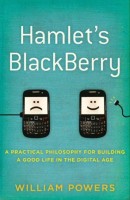|
Saturday, September 18,
2010
EFF-PFF Amicus Brief in Schwarzenegger v. EMA Supreme Court Videogame Violence Case
 By Berin Szoka & Adam Thierer By Berin Szoka & Adam Thierer
Yesterday, the Progress & Freedom Foundation (PFF) and Electronic Frontier Foundation (EFF) filed a joint amicus brief with the U.S. Supreme Court urging the Court to protect the free speech rights of videogame creators and users and asking the justices to uphold a ruling throwing out unconstitutional restrictions on violent videogames. At issue is a California law that bans the sale or rental of "violent" videogames to anyone under the age of 18, among other regulations. While the law was passed in 2005, it has never taken effect, as courts have repeatedly ruled it unconstitutional. California appealed its loss at the Ninth Circuit Court of Appeals to the Supreme Court. The case is Schwarzenegger vs. EMA.
This case has profound ramifications for the future of not just videogames, but all media, and the Internet as well. Although we've had 15 years of fairly solid Supreme Court case law on new media issues, a loss in the Schwarzenegger case could reverse that tide. In the amicus brief, we explain how the current videogame content rating system empowers parents to make their own decisions without unconstitutionally restricting this new and evolving form of free speech. Our brief is focused on three major arguments:
- Parental Control Tools, Household Media Control Methods, Self-Regulation and Enforcement of Existing Laws Constitute Less Restrictive Means of Limiting Access to Objectionable Content than Government Regulation of Constitutionally Protected Speech
- Videogame Content is Constitutionally Protected Speech Deserving Strict Scrutiny
- The State Has Not Established a Compelling Government Interest in Restricting the Sale of Videogames to Minors
The filing can be found online here and it is embedded down below. As always, the Media Coalition has done an outstanding job summarizing the case and listing all the major briefs filed with the Court in this matter, so check out their Schwarzenegger v. EMA page for everything you need to know about this case. GamePolitics.com also offers excellent ongoing coverage of the case. Continue reading EFF-PFF Amicus Brief in Schwarzenegger v. EMA Supreme Court Videogame Violence Case . . .
posted by Adam Thierer @ 12:44 PM |
Free Speech, Video Games & Virtual Worlds
Link to this Entry | Printer-Friendly | Email a Comment
| Post a Comment (44)
Friday, September 17,
2010
New OECD Study Finds That Improved IPR Protections Benefit Developing Countries
The Organization for Economic Cooperation and Development (OECD) just released a useful new study entitled Policy Complements to the Strengthening of IPRs in Developing Countries. It significantly undermines the claims of "public interest" advocates who wail that they just know intuitively that improved legal protection for intellectual property rights (IPRs) are merely one more means through which developed countries oppress developing countries. While such claims often sound lofty and compassionate, very ugly prejudices often lurk beneath them. Fortunately, by actually studying real data, the OECD found that such claims are wrong as applied to actual developing countries: "[T]the results point to a tendency for IPR reform to deliver positive economic results." Continue reading New OECD Study Finds That Improved IPR Protections Benefit Developing Countries . . .
posted by Thomas Sydnor @ 12:27 PM |
Capitalism, Copyright, Global Innovation, Human Capital, IP, Innovation, Internet
Link to this Entry | Printer-Friendly | Email a Comment
| Post a Comment (12)
Tuesday, September 14,
2010
Hubris, Cowardice, File-sharing, and TechDirt
Over at Digital Society, Jim DeLong's Filesharing in Underdeveloped Nations: Let's Take from the Poor and Give to the Rich does a fine job of ripping apart the latest round of nonsense from the economically challenged blog TechDirt. I won't spoil the fun, but suffice it to say that Jim shreds TechDirt "arguments" with casual ease.
Jim's piece also highlights a fundamental problem with TechDirt's childish, copyright-hating worldview: TechDirt brews its venom from an ugly blend of hubris and cowardice.
Continue reading Hubris, Cowardice, File-sharing, and TechDirt . . .
posted by Thomas Sydnor @ 5:11 AM |
Antitrust & Competition Policy, Copyright, IP, Internet, Trademark
Link to this Entry | Printer-Friendly | Email a Comment
| Post a Comment (6)
Friday, September 10,
2010
iPhones, DRM, and Doom-Mongers
In the National Law Journal, Dan Brenner's piece, Apps decision: no big deal, provides a thoughtful debunking of the hype that surrounded this summer's decision by the Librarian of Congress to exempt the "jailbreaking" of iPhones from the anti-circumvention provisions of 17 U.S.C. § 1201(a). I tried to make similar points back when the ruling was first issued, but I think that Brenner has better explained the underlying issues.
Continue reading iPhones, DRM, and Doom-Mongers . . .
posted by Thomas Sydnor @ 11:35 AM |
Antitrust & Competition Policy, Copyright, IP, Internet
Link to this Entry | Printer-Friendly | Email a Comment
| Post a Comment (12)
Wednesday, September 8,
2010
"Rogue Archivist" Carl Malamud On How to Fix Gov2.0
At yesterday's Gov2.0 Summit conference, "rogue archivist" Carl Malamud gave a great speech about what's wrong with government IT and what should be done about it. Continue reading "Rogue Archivist" Carl Malamud On How to Fix Gov2.0 . . .
posted by Adam Marcus @ 1:54 PM |
e-Government & Transparency
Link to this Entry | Printer-Friendly | Email a Comment
| Post a Comment (91)
Monday, September 6,
2010
Coping with Information Overload: Thoughts on Hamlet's BlackBerry by William Powers
 Information overload is a hot topic these days. I've really enjoyed recent essays by Aaron Saenz ("Are We Too Plugged In? Distracted vs. Enhanced Minds"), Michael Sacasas ("Technology Sabbaths and Other Strategies for the Digitized World"), and Peggy Noonan ("Information Overload is Nothing New") discussing this concern in a thoughtful way. Thoughtful discussion about this issue is sometimes hard to find because, as I've noted here before, information overload is a subject that bitterly divides Internet optimists and pessimists. The pessimists tend to overplay the issue and discuss it in apocalyptic terms. The optimists, by contrast, often dismiss the concern out of hand. Certainly there must be some reasonable middle ground on this issue, no? Information overload is a hot topic these days. I've really enjoyed recent essays by Aaron Saenz ("Are We Too Plugged In? Distracted vs. Enhanced Minds"), Michael Sacasas ("Technology Sabbaths and Other Strategies for the Digitized World"), and Peggy Noonan ("Information Overload is Nothing New") discussing this concern in a thoughtful way. Thoughtful discussion about this issue is sometimes hard to find because, as I've noted here before, information overload is a subject that bitterly divides Internet optimists and pessimists. The pessimists tend to overplay the issue and discuss it in apocalyptic terms. The optimists, by contrast, often dismiss the concern out of hand. Certainly there must be some reasonable middle ground on this issue, no?
There is, and some of it can be found in a fine new book, Hamlet's BlackBerry: A Practical Philosophy for Building a Good Life in the Digital Age, by William Powers. Powers, a former staff writer for the Washington Post, is a gifted storyteller and his walk though the history of philosophy and technology makes this slender volume an enjoyable, quick read. He begins by reminding us that:
whenever new devices have emerged, they've presented the kinds of challenges we face today -- busyness, information overload, that sense of life being out of control. These challenges were as real two millennia ago as they are today, and throughout history, people have been grappling with them and looking for creative ways to manage life in the crowd. (p. 5)
His key insight is that is that humans can adapt to new technology, but it takes time, patience, humility, and a little effort. "The key is to strike a balance," he says, between "the call of the crowd" and the "need for time and space apart" from it. (p. 4) The problem we face today is that all the pressure is on us to be what he calls "Digital Maximalists." That is, many of us are increasingly out to maximize the time spent in front of various digital "screens" whether we have made the determination that is really in our best interest or not. It has just gradually happened, Powers argues, because "The goal is no longer to be 'in touch' but to erase the possibility of ever being out of touch." (p. 15) Continue reading Coping with Information Overload: Thoughts on Hamlet's BlackBerry by William Powers . . .
posted by Adam Thierer @ 7:47 PM |
Philosophy / Cyber-Libertarianism, What We're Reading
Link to this Entry | Printer-Friendly | Email a Comment
| Post a Comment (6)
|
